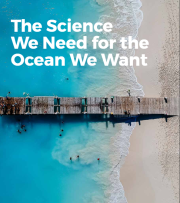
- Home
- Our Work
We provide scientific and technical advice on the development, planning and implementation of the activities of the Sub-Commission.
- UN Ocean Decade
- UN 21: Marine Spatial Planning
- UN 22: Stem of Asia’s Riverine Plastic Emission
- UN 23: Accelerating the Capacity Development Transformations: Regional Network of Training and Research Centers
- UN 24: Explore the Strongest Ocean Current in the Western Pacific: CSK2
- News
- Events
Discover the latest and up-to-date news and headlines from all over the WESTPAC region
- Resources
We serve as a unique international platform to advance marine scientific knowledge, and catalyze multi and cross-disciplinary collaborations among its Member States
- About Us
We promote international cooperation and to coordinate programmes in marine research, ocean observations and services
Contact Us

IOC Sub-Commission for the Western Pacific (WESTPAC)
Advancing knowledge and cooperation for a healthy ocean and prosperous society

- Home
- Our Work
We provide scientific and technical advice on the development, planning and implementation of the activities of the Sub-Commission.
- UN Ocean Decade
- UN 21: Marine Spatial Planning
- UN 22: Stem of Asia’s Riverine Plastic Emission
- UN 23: Accelerating the Capacity Development Transformations: Regional Network of Training and Research Centers
- UN 24: Explore the Strongest Ocean Current in the Western Pacific: CSK2
- News
- Events
Discover the latest and up-to-date news and headlines from all over the WESTPAC region
- Resources
We serve as a unique international platform to advance marine scientific knowledge, and catalyze multi and cross-disciplinary collaborations among its Member States
- About Us
We promote international cooperation and to coordinate programmes in marine research, ocean observations and services
Contact Us
Our Operational Structures
WESTPAC governs the establishment, implementation and termination of its project in accordance with the WESTPAC Strategy and Program Structure (2008-2013)
Session
The Intergovernmental Session, held every two or three years, is the decision-making body of the Sub-Commission composed of national representatives. In general, the Session provides a venue for Member States to define strategic direction, review programme implementation, recommend the programme and budget over the next intersessional period for the approval of IOC governing bodies. Currently there are 22 Member States, mainly in the East Asia, Southeast Asia, Eastern Indian Ocean and South Pacific. Its membership is open to all interested Member States of IOC/UNESCO willing to participate actively in the work of the Sub-Commission.
Advisory Group
The WESTPAC Advisory Group, composed of the Officers of the Sub-Commission and up to five additional experts in relevant disciplines of marine science, has the responsibility to provide scientific and technical advice on the development, planning and implementation of the activities of the Sub-Commission. Its Terms of Reference was adopted through WESTPAC Recommendation SC-WESTPAC-VII.1.
Ocean Observations & Services
WESTPAC has been instrumental in the development of regional ocean observing systems through the development and coordination of ocean observations and associated services among Member States, with a view to demonstrate the value of sustained observations and associated services to the society. WESTPAC has been developing NEAR-GOOS, and SEAGOOS, and catalyzing the emerging Indo-Pacific Ocean Observations and Services Network (IPON).
1. North East Asian Regional-GOOS
2. South East Asian Regional-GOOS
3. Monitoring the Ecological Impacts of Ocean Acidification on Coral Reef Ecosystems (OA)
4. Ocean Forecasting System (OFS)
5. Monsoon Onset Monitoring and its Social & Ecosystem Impacts (MOMSEI)
6. Air-Sea Interaction in the Kuroshio Extension and its Climate Impact
7. Upwelling Studies through Ocean Data Integration towards Sustaining Ocean Health and Productivity
8. Indo-Pacific Ocean Environmental Variations and Air-Sea Interactions (IPOVAI)
Marine Science & Applications
WESTPAC research projects and/or programmes are established upon the recommendation of the WESTPAC Advisory Group and the decision of WESTPAC Session. Once established, the Project Steering Group, led by the designated Project Leader, is responsible for the planning, direction and implementation of the project/programme. WESTPAC governs the establishment, implementation and termination of its project in accordance with the WESTPAC Strategy and Program Structure (2008-2013).
1. Coral Reef Conservation (Formerly named as Marine and Coastal Biodiversity and Conservation)
2. Coral Reef Resilience to Climate Change and Human Impacts (Formerly named as Coral Reef under Climate and Anthropogenic Perturbations)
3. DNA Taxonomy and Recruitment Monitoring of the Coral Reef Marine Organisms
4. Marine Toxins and Seafood Safety
5. Harmful Algal Blooms
6. Ocean Remote Sensing for Coastal Habitat Mapping
7. Enhancement of Sustainable Harmful Jellyfish Research & Networking in the Western Pacific region
8. Marine Endangered Species
9. Distribution, Source, Fate and Impacts of Marine Microplastics in the Asia Pacific
10. South China Sea Fluvial Sediments and Environment Changes
Capacity Development
In addition to regular topic-specific trainings developed by WESTPAC research projects, WESTPAC initiated a regional capacity building programme entitled “UNESCO/IOC Regional Network of Training and Research Centers on Marine Science” through the establishment of Regional Training and Research Centers (RTCs) in national marine research institutes and/or universities and the provision of regular training and research opportunities within their domains of focus. The guidelines can be downloaded here.
IOC Regional Network of Training and Research Centers (RTRCs)
- IOC Regional Training and Research Center on Ocean Dynamics and Climate (RTRC-ODC)
- IOC Regional Training and Research Center on Marine Biodiversity andEcosystem Health (RTRC-MarBEST)
Working Groups
The WESTPAC Working Group is another operational mechanism, complementary to WESTPAC programmes/projects, for attracting leading scientists in the region to deliberate on specifically focused scientific topics, marine-related societal concerns and other international emerging issues which largely require marine scientific input. The groups are expected to hold up to one meeting per year over their lifetime to fulfill their terms of reference and develop a publication for the primary scientific literature, write a project proposal together with a detailed implementation plan, or construct a concrete action plan to be carried out within the framework of WESTPAC. For those interested in establishing a WESTPAC Working Group, please refer to the Guidelines for the Establishment of WESTPAC Working Groups (Recommendation SC- WESTPAC-VIII.3: WESTPAC Working Groups).
1. WG 006: Working Group on Energy and Materials Exchange between Land and Open Ocean (2017-2019)
2. WG 005: Working Group on Ocean Oxygen Network (WESTPAC O2NE, 2017-2019)
3. WG 004: Working Group on Marine Renewable Energy Technology Development (2012-2017)
4. WG 003: Working Group on Mapping the Harmful Jellyfishes (2012-2017)
5. WG 002: Working Group on World Ocean Assessment (2010-2015)
6. WG 001: Working Group on Asian Dust and its Impact on Ocean Ecosystem (2010-2015)
Inter-Sessional Working Group
Inter-Sessional Working Group on Feasibility Study on the Second Cooperative Study of the Kuroshio and Adjacent Regions
International Marine Science Conference
The WESTPAC International Scientific Symposium has been once every three years since 1987, which serves as a unique international platform to advance marine scientific knowledge, and catalyze multi and cross-disciplinary collaborations among its Member States with a view to addressing challenges this particular region is facing. Read more on previous WESTPAC International Scientific Symposium.
WESTPAC Office
The WESTPAC Office, located in Bangkok, Thailand, carries out the diverse day-to-day work of the organization. In partnership with various stakeholders, it oversees, develops, coordinates and implements WESTPAC’s programmes and policies. The duties carried out by the Office are as varied as the problems in the ocean. These range from developing, coordinating programmes to administering financial operations and organizing a number of events, from providing technical support on behalf of the organization to mobilizing financial support for programme implementation.

